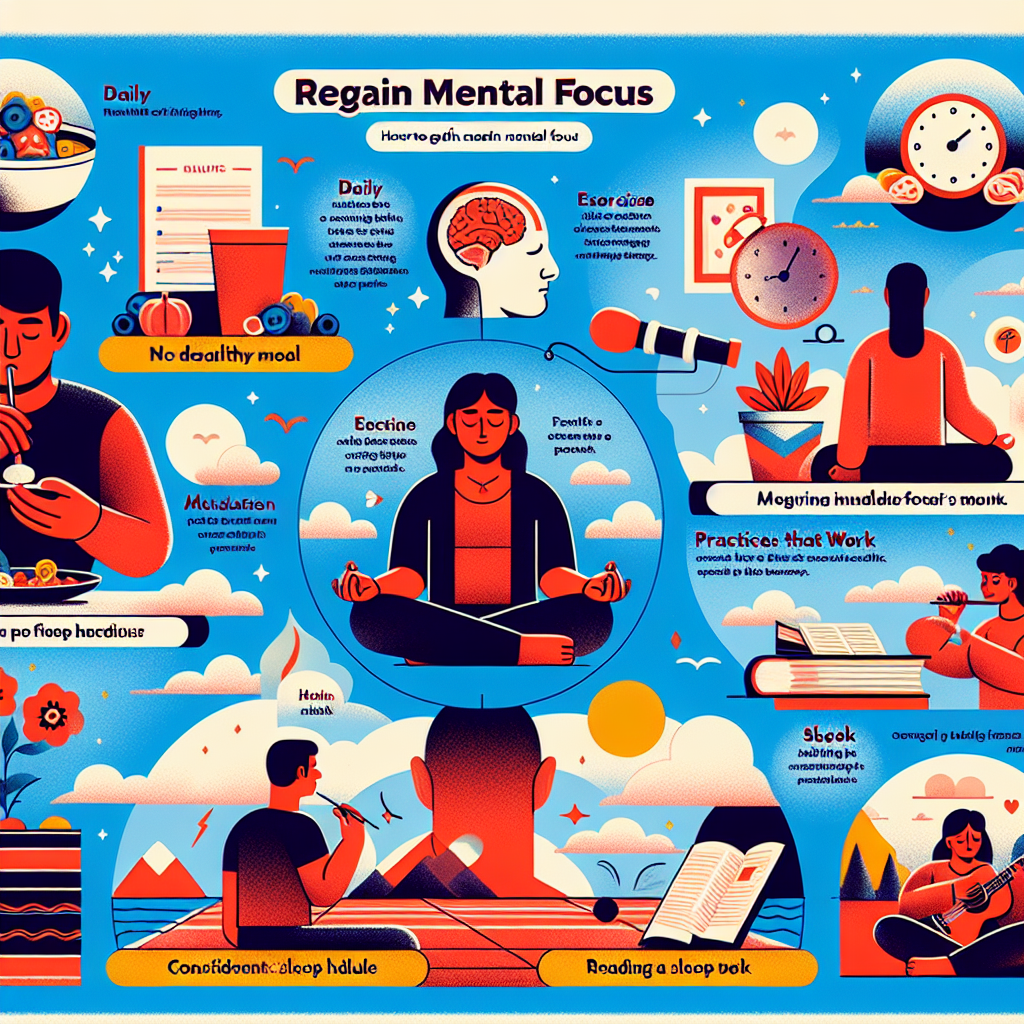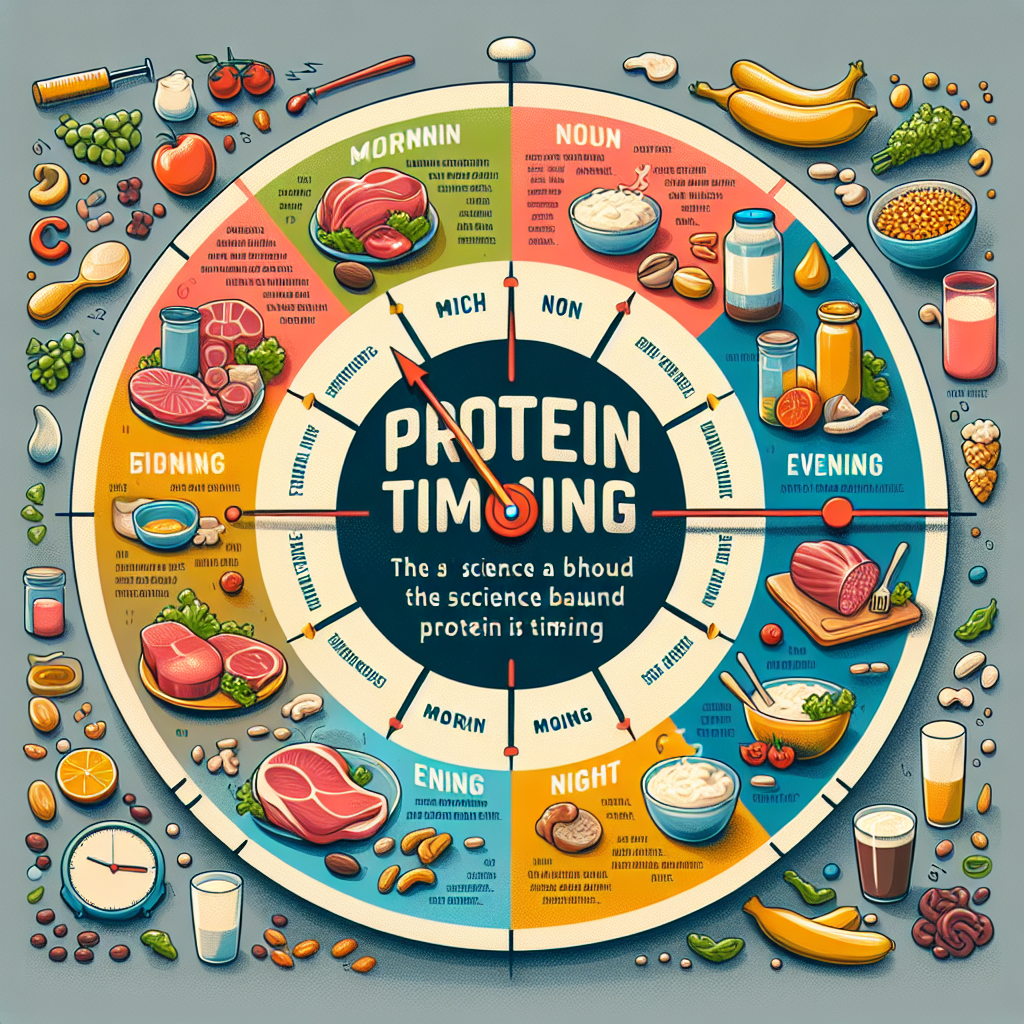How to Regain Mental Focus: Daily Habits and Practices That Work.
1. Understanding Mental Focus
Mental focus is the ability to concentrate on a particular task or objective while filtering out distractions. It plays a crucial role in productivity, decision-making, and overall mental well-being. Research indicates that the average adult can only focus for about 20 minutes before needing a break. This highlights the importance of developing habits that enhance focus throughout the day.
2. Establishing a Morning Routine
A structured morning routine sets a positive tone for your day and enhances mental clarity. Start by waking up at the same time every day, allowing your body to establish a rhythm. Incorporate activities such as stretching, meditation, and a healthy breakfast. Studies show that individuals who engage in consistent morning habits report feeling more productive and focused. Breakfast should include protein and complex carbohydrates for sustained energy.
3. Prioritizing Sleep Hygiene
Quality sleep is foundational for mental focus. Adults typically need between 7 to 9 hours of sleep per night. Lack of sleep can impair cognitive functions, including problem-solving and attention. Implement a sleep routine by setting regular bedtime hours, creating a relaxing environment, and limiting screen time before sleep. According to a study by the National Sleep Foundation, individuals who consistently prioritize good sleep report enhanced focus and mental clarity.
4. Practicing Mindfulness and Meditation
Mindfulness and meditation are proven practices that can significantly improve concentration and mental resilience. Engaging in meditation for just 10 minutes a day can reduce stress and enhance your ability to focus. Research published in the Journal of Cognitive Enhancement indicates that mindfulness practices can increase mental focus and cognitive flexibility. This is due to their ability to train the brain to become more present and less distracted.
5. Leveraging the Pomodoro Technique
The Pomodoro Technique is a time management method that encourages working in short, focused bursts followed by breaks. Typically, this technique involves 25 minutes of uninterrupted work followed by a 5-minute break. After four cycles, take a longer break of 15 to 30 minutes. Statistics show that this method can boost productivity by an impressive 25% as it helps maintain mental energy and focus over an extended period.
6. Limiting Multitasking
While multitasking may seem like a way to get more done in less time, studies show it can actually reduce productivity and mental focus by up to 40%. Instead, try to focus on one task at a time. Make to-do lists to keep your tasks organized, allowing you to fully concentrate on each task without fragmenting your attention. This single-task approach increases the quality of your work and significantly improves your focus.
7. Hydration and Nutrition
Staying hydrated and properly nourished is essential for optimal brain function. Dehydration can lead to concentration difficulties and cognitive fatigue. Aim to drink enough water throughout the day, targeting at least 2 liters for women and 3 liters for men. Moreover, incorporating brain-boosting foods such as fatty fish, nuts, and berries can support cognitive function and mental clarity. Research suggests that omega-3 fatty acids found in fish can enhance focus and memory.
8. Creating a Distraction-Free Environment
Your environment plays a crucial role in determining your level of focus. Create a workspace that minimizes distractions, whether it’s removing clutter, using noise-canceling headphones, or turning off unnecessary notifications on your phone. A study published in the Journal of Environmental Psychology found that a well-organized workspace can enhance focus and productivity levels. Additionally, consider using apps designed to block distracting websites during work hours.
9. Incorporating Regular Exercise
Physical activity blesses the mind with numerous benefits that include improved concentration and mental clarity. Regular exercise, such as walking, running, or yoga, increases blood flow to the brain and releases endorphins, enhancing mood and cognitive function. The World Health Organization recommends at least 150 minutes of moderate aerobic activity each week for optimal health, which has been shown to significantly boost mental performance.
10. Setting Realistic Goals
Setting and tracking realistic goals can enhance focus and motivational levels. Use methods such as SMART goals—Specific, Measurable, Achievable, Relevant, and Time-bound. By breaking larger tasks into smaller, actionable goals, you can reduce feelings of overwhelm and increase your ability to concentrate. Research indicates that clearly defined goals help people maintain focus and stay committed to their tasks, which, in turn, boosts productivity.
11. Taking Breaks
Taking regular breaks is not just a luxury; it’s a necessity for maintaining mental focus. Short breaks can help recharge your brain, enhance creativity, and combat fatigue. The brain can only maintain peak mental performance for limited durations. Therefore, implementing strategic breaks throughout the day can refresh your mind and prevent burnout. A study found that workers who take periodic breaks tend to see a 34% increase in productivity.
12. Incorporating Passion Projects
Passion projects can rejuvenate your mental energy and sharpen your focus. Engaging in activities that align with your interests can provide a refreshing break from routine tasks while naturally enhancing focus. For instance, pursuing hobbies such as painting, writing, or learning a musical instrument can help optimize brain function by fostering creativity and reducing stress levels. Research suggests that individuals who spend time on hobbies exhibit improved focus when returning to work-related tasks.
13. Utilizing Technology Wisely
While technology can be distracting, it can also be a powerful tool to boost focus. Consider using apps that promote concentration, such as task managers and focus music playlists. Mind-mapping tools can help organize thoughts and structure ideas effectively. But be wary of overreliance on technology, ensuring that digital tools support your focus rather than hinder it.
14. Seeking Professional Help if Needed
Lastly, if you find that mental focus remains elusive despite trying various strategies, it’s important to seek professional help. Conditions such as ADHD or anxiety can significantly impact focus and require tailored interventions. Mental health professionals can provide coping strategies and therapeutic techniques to improve focus and attention. A consultation may reveal effective treatments that empower you to regain control over your cognitive abilities.
By implementing these daily habits and practices, you can significantly enhance your mental focus. Remember that consistency is key, and small steps can lead to substantial improvements over time.




Post Comment